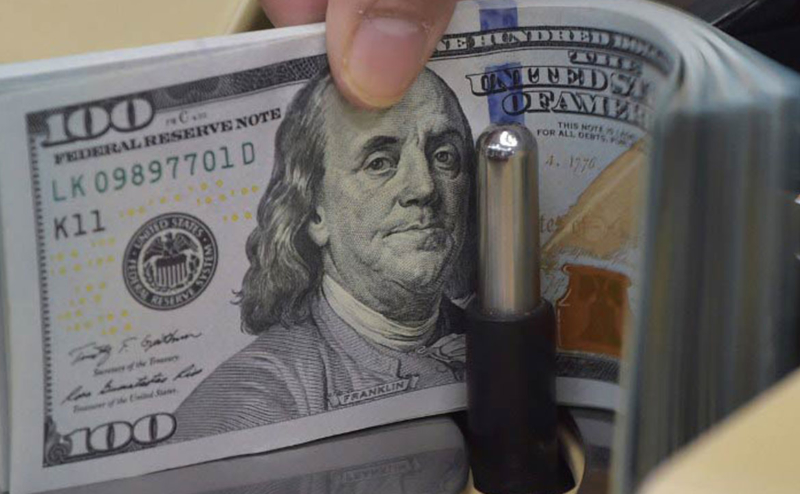Unless the Central Bank of Nigeria (CBN) is consistent in making foreign exchange (forex) available for manufacturers to import raw materials that are yet to have local alternatives, foreign investors with access to cheaper funds may acquire controlling stakes in these local firms.
Already, some firms that are unable to sustain their operations, having suffered huge losses in 2016 due to currency adjustments and inadequate access to forex, are being acquired by new investors, while others are exploring the Nigerian Stock Exchange (NSE) by way of rights issue before considering bailout from their parent companies. Indeed, many listed local producers lost over N50 billion in profit across the food, beverages, conglomerates and drug manufacturing sectors.
As it is, the CBN which has been injecting forex into the system lately to stabilise the naira may have to do more to help the real sector. If the low supply of foreign exchange for local production continues, it means the control of the manufacturing sector will slip into the hands of foreign investors even as the growth of local content remains inhibited when returns on investments are repatriated from the economy.
For instance, the parent company of Guinness Nigeria Plc – Diageo – is already planning to take up its rights by way of a debt/equity swap wherein the outstanding foreign currency loan (N20.3 billion as at first half of 2017) from Diageo will be used as payment for its rights in Guinness.
The acquisition of Nigeria’s Swiss Pharmaceutical Company (Swipha), was completed at the weekend with the French generic medicine manufacturer, Biogaran, announcing over 95 per cent stake in the company.
For Nestle Nigeria Plc, its profit after tax was negatively impacted both by the revaluation of foreign loans resulting from the devaluation of the naira and higher income tax provisions due to the expiration of the pioneer status. The company closed the year at N7.9 billion profit from N23.7 billion in 2015.
The capacity utilisation in the nation’s drug manufacturing sector and other productive sectors had dropped to an all-time low of 20 per cent due to inadequate access to foreign exchange for the importation of critical raw materials, mainly active pharmaceutical ingredients (APIs) and machinery inputs. There is also the challenge of competition from poorly regulated markets.
The acquisition of Swipha may have been made possible due to the inability of the Nigerian firm to sustain its operations arising from the high cost of doing business and huge debt.
Guinness Nigeria Plc suffered a loss of N4.7 billion in 2016 from a profit after tax of N1.17 billion in 2015, even as it announced a rights issue price at N58.00, 17% discount, to market price.
The company intends to use the funds to improve its balance sheet given its relatively high debt level (Debt/Equity ratio of 1.3 vs. Nigerian Breweries of 0.1), finance its working capital needs and expand its operations.
The Nigerian Breweries, following the huge forex loss, ended the year with profit before tax of N39.675 billion, down from N54.514 billion in 2015 and profit after tax of N28.416 billion as against N38.05 billion in 2015.
On plans for the acquired Swipha, President of Biogaran, Pascal Brière told The Guardian that the new management’s first priority would be the revitalisation of the company and give confidence to employees on its commitment to a prosperous future.
The President of the Manufacturers Association of Nigeria (MAN), Dr. Frank Jacobs, however, dismissed the notion of firms selling their factories to new owners, saying that the CBN had cleared many of the backlogs of foreign exchange, thus, bringing firms back in business.
He said that 2016 was a terrible year for everybody but businesses were able to sustain their operations.
“Situations may be very difficult; it may also be that some businesses are relocating or seeking new areas of investments, but they are not closing down. I know it is part of the things that happened in the course of the forex crisis. Once an area of business is no longer lucrative, chances are that the business divests, but it does not mean that it is closing operations. They may not be doing it exclusively because of scarcity of forex but due to infrastructure challenges, among others,” Jacobs said.
According to a former National Coordinator of Independent Shareholders Association (ISAN), Sir Sunny Nwosu, the move by Guinness to raise capital from the stock exchange, though belated, is in the right direction, considering the need of the firm to sustain its business and enhance shareholders’ return on investments.
The Minister of Industry, Trade and Investment, Dr. Okechukwu Enelamah, has admitted that some of the policies implemented by the Federal Government affected manufacturers negatively.
Enelamah, who made the remarks in an interview with CNN in London, was quoted as saying: “Some policies we passed affected manufacturers in terms of their raw materials and we are correcting those now. We want to discourage dumping and bad practices that happened in the past. But we need to do it in a way that does not hurt local manufacturing.”
Guardian
This page has been viewed 295 times


























